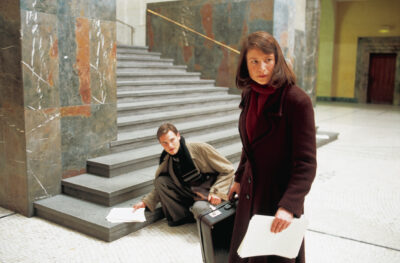
SOPHIE SCHOLL: THE FINAL DAYS screenwriter Fred Breinersdorfer in person for a Q&A at the Royal.


Subject Q&A schedule at the Laemmle Glendale.
7 pm, Friday, November 3rd: Post-screening Q&A with Subject co-director Jen Tiexiera along with producer and documentary subjects Margie Ratlif (The Staircase), co-producer and subject Jesse Friedman (Capturing the Friedmans), Executive Producer Alexandra Johnes (Time Studios) and cultural strategist Sonya Childress (Color Congress, Perspective Fund). Moderated by Sara Yasin (Managing Editor, Los Angeles Times).
7 pm, Saturday, November 4th: Post-screening Q&A with co-director Jen Tiexiera along with producer and documentary subjects Margie Ratlif (The Staircase), co-producer and subject Jesse Friedman (Capturing the Friedmans), Executive Producer Alexandra Johnes (Time Studios). Moderated by Matt Carey (Documentary Awards Editor, Deadline Hollywood).
4:10 pm, Sunday, November 5th: Post-screening Q&A with co-director Jen Tiexiera along with producer and documentary subjects Margie Ratlif (The Staircase), co-producer and subject Jesse Friedman (Capturing the Friedmans), Executive Producer Alexandra Johnes (Time Studios). Moderated by Caroline Libresco (Co-Executive Director, Jewish Story Partners)
“Margot met Robert on a Wednesday night toward the end of her fall semester. She was working behind the concession stand at the artsy movie theatre downtown when he came in and bought a large popcorn and a box of Red Vines.”
So begins Kristen Roupenian’s short story Cat Person. When The New Yorker published it in 2017, it struck a nerve with readers and was the first work of short fiction to ever go viral, spurring conversations around the world about the modern dating scene, seduction, and consent. After the film adaptation’s buzzy premiere at Sundance in January, Cat Person is finally where it belongs, at “artsy movie theatre[s],” opening this weekend at the Royal, Town Center and Glendale and October 13 at the Monica Film Center and NoHo. We’re also pleased to host two special screenings at the NoHo with the filmmaker Susanna Fogel in person for conversations with social activist and writer Monica Lewinsky on October 12 and with actor-writer-director Alex Winter on October 13.
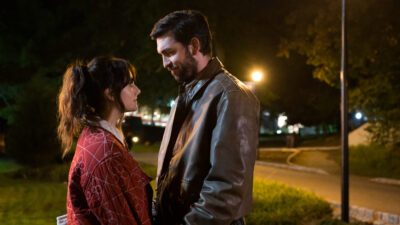
Director Susanna Fogel stated “Like the short story that stirred so much controversy, Cat Person will call upon you to reflect on romantic encounters you’ve had in the past, and to question the role (or multiple roles) you may have played. We’ve all been the victim in some narratives and the villain in others, and I hope you’ll walk out of this film with a strong opinion, ready to debate.”
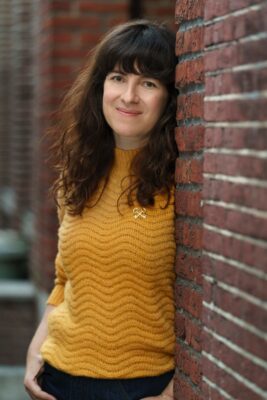

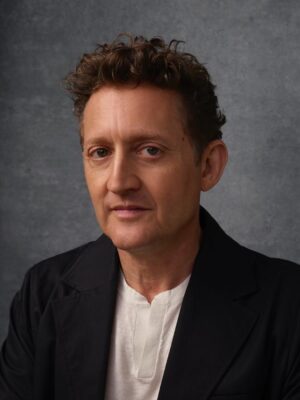
“A film that’s funny in places, horrifying in others and all but destined to be a reference point in future discussions about courtship.” ~ Peter Debruge, Variety
“The relief…is in the filmmakers’ approach to these tense scenes: Fogel and Ashford loosen their grip, at last trusting us to sit in our discomfort, draw our own conclusions and sharpen our tools for the discourse.” — The Hollywood Reporter
Several screenings of Another Body at the Royal will feature Q&As. Here is the schedule:
Join us Thursday, October 13th at 7pm for the special screening of Cat Person at Laemmle’s NoHo 7 followed by a conversation between award-winning filmmaker Susanna Fogel and director-writer-actor Alex Winter.
Susanna Fogel is a director, screenwriter, and novelist. Most recently, she wrapped production on Winner, a feature biopic of American whistleblower Reality Winner starring Emilia Jones, Connie Britton, Zach Galifianakis, and Kathryn Newton. Her prior feature film work includes co-writing the hit comedy Booksmart and directing and co-writing Lionsgate’s The Spy Who Dumped Me. On the television side, her directing credits include the pilot episode of the HBO Max series “The Flight Attendant,” for which she won a DGA Award and was nominated for an Emmy, the first three episodes of National Geographic’s recent WWII limited series A Small Light, the pilot of the Amazon series “The Wilds,” and episodes of Gillian Flynn’s remake of “Utopia.”
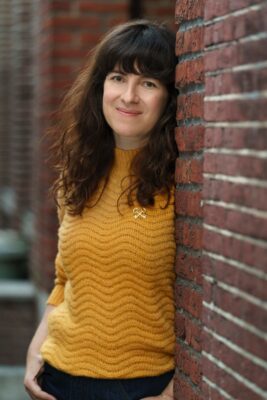
Alex Winter entered show business as a child actor with co-starring roles on Broadway in The King & I and Peter Pan, and came to prominence in movies such as The Lost Boys and the wildly popular Bill & Ted franchise. As a filmmaker, Winter’s narrative features include the cult classic Freaked and the critically acclaimed Fever, which screened at Cannes. Winter is the founder of Trouper Productions, which services his documentary work. In 2020, Winter released two new documentary feature films; Showbiz Kids, premiered on HBO to widespread critical acclaim, garnering a Critics Choice nomination. Followed by Zappa, the first all-access documentary on the life and times of Frank Zappa. The highly anticipated Bill & Ted Face the Music, opened in August 2020 as the number one movie both in the U.S. and the UK, and is Certified Fresh on Rotten Tomatoes. Winter just completed his next feature documentary, The YouTube Effect, which had its world premiere at Tribeca and went on to a sold-out theatrical run and is now being released worldwide on digital.

Cat Person is a genre-bending thriller which after having its world premiere out of the 2023 Sundance Film Festival has become one of the most anticipated films of the Fall. The film is an all-too-relatable modern-day dating story that rapidly turns into a boldly provocative psychological thriller questioning the limit between fantasy and reality. Cat Person is a smart, darkly funny conversation starter.
Most screenings of the new documentary Cup of Salvation will feature Q&As at the Laemmle Glendale. Here’s the schedule:
| Date: | Q&A |
| Friday, October 6th | |
| 1:30 PM | Anush Gharivyan O’Conner, Jason Wise, Armen Khachaturian |
| 4:30 PM | Anush Gharivyan O’Conner, Jason Wise, Armen Khachaturian |
| 7:10 PM | Kara Warner, Jason Wise, Armen Khachaturian |
| Saturday, October 7th | |
| 1:30 PM | Jason Wise, Armen Khachaturian |
| 4:30 PM | Jason Wise, Armen Khachaturian |
| 7:10 PM | Jason Wise, Armen Khachaturian, Christina Wise, Jackson Myers |
| Sunday, October 8th | |
| 1:30 PM | |
| 4:30 PM | Jason Wise, Armen Khachaturian, Christina Wise |
| 7:10 PM | Jason Wise, Armen Khachaturian, Eric Esrailian |
| Monday, October 9th | |
| 1:30 PM | |
| 4:30 PM | Jason Wise, Christina Wise |
| 7:10 PM | Jason Wise, Christina Wise |
| Tuesday, October 10th | |
| 1:30 PM | |
| 4:30 PM | Jason Wise, Jackson Myers |
| 7:10 PM | Jason Wise, Jackson Myers |
| Wednesday, October 11th | |
| 1:30 PM | |
| 7:10 PM | Jason Wise, Vahe Keushguerian |
| Thursday, October 12th | |
| 1:30 PM | |
| 7:10 PM | Jason Wise, Vahe Keushguerian, Claire Coppi moderator |
